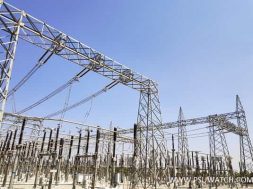
German industrial engineering and steel production giant Thyssenkrupp will work with German energy company Steag are planning a 500MW hydrogen electrolysis plant intended to power steel production.
The HydrOxy Hub Walsum project is expected to be connected to the grid and producing green, renewable-powered hydrogen by as soon as 2025. Set to be built in Walsum, its proximity to Thyssenkrupp’s Duisburg steel production plant will also avoid the need to construct an elaborate supply system, and allow the project and subsequent hydrogen powered steel production to be implemented much quicker.
The HydrOxy Hub Walsum hydrogen project is intended as a first step in decarbonising steel production in Germany and act as a test case to be later expanded across Europe.
Thyssenkrupp’s steel production facility in Duisburg is “the largest steel location in the EU,” according to Dr. Ralf Schiele, responsible within the STEAG management for the Market and
Technology divisions, and subsequently serves as a promising example of the value of climate-neutral steel production.
Further, the Thyssenkrupp and STEAG project in Duisburg-Walsum falls at the crossroads of the hydrogen objectives of the German Federal Government and the European Union’s own hydrogen strategy.
Additionally, if successful, the HydrOxy Hub Walsum project would contribute directly to achieving Germany’s emissions targets set out in the Federal Climate Change Act.
As renewables and green hydrogen projects continue to grow in popularity and demand, the decarbonisation of industrial production will become a more attractive prospect for companies.
Thyssenkrupp’s plan to decarbonise its steel production comes just over a month after Emirates Global Aluminium (EGA) began producing aluminium powered by electricity generated by the Mohammed bin Rashid Al Maktoum Solar Park in the United Arab Emirates.
The Dubai Electricity and Water Authority (DEWA) and Emirates Global Aluminium (EGA) jointly announced in January that the Mohammed bin Rashid solar project in Dubai had started generating electricity for EGA’s aluminium smelter, providing 560,000 megawatt-hours of power each year, sufficient for the production of 40,000 tonnes of aluminium.
“Aluminium is lightweight, strong and infinitely recyclable metal and these properties mean that as a material it plays a vital global role in the development of a sustainable future,” said Abdulnasser Bin Kalban, Chief Executive Officer of EGA.
“However, it also matters how sustainably aluminium is made. CelestiAL aluminium, made in the UAE with solar power, will help make modern life possible for people around the world whilst protecting our planet for future generations. This is a great milestone for the UAE and our industry.”
In turn, at the beginning of February, German luxury vehicle manufacturer BMW announced that it had signed a contract to source its aluminium from Emirates Global Aluminium’s new CelestiAL production line.














